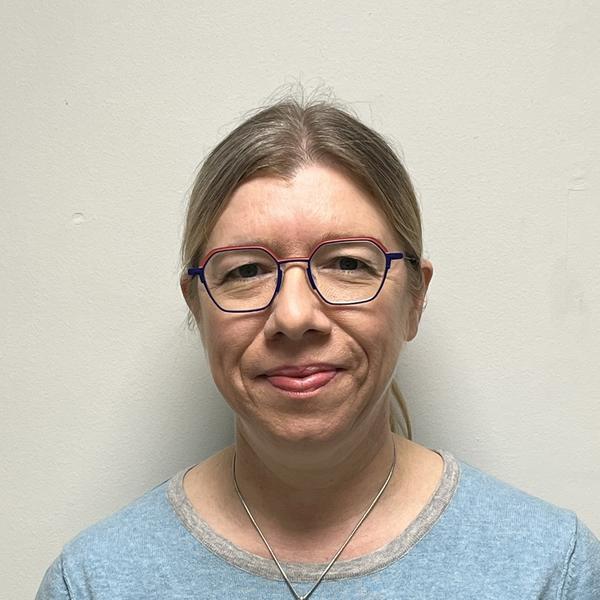Academic clinical fellowships in infectious diseases, medical microbiology and virology
This Academic Clinical Fellowship (ACF) programme is run by the University of Sheffield, the Sheffield Teaching Hospitals NHS Trust and NHS England North East and Yorkshire.
Research component
ACFs in infectious diseases or microbiology are based within the Clinical Infection Research Group (CIRG) which is part of the Division of Clinical Medicine in the School of Medicine and Population Health of the Faculty of Health in the University of Sheffield. Research is usually taken as a nine-month block or split into two shorter blocks.
The Clinical Infection Research Group Clinical academics team provides a research training environment using research methods ranging from clinical trials, clinical epidemiology, statistical modelling, human challenge studies, in vitro laboratory immunology, genomics and mechanistic studies. Applied research areas include biomarker discovery and implementation, vaccine and monoclonal antibody development, immunisation optimisation, and design and evaluation of novel therapeutics.
Pathogen-specific interests in Staphylococcus aureus, Streptococcus pneumoniae, Streptococcus pyogenes (Group A Strep) and Salmonella typhi biology while clinical research focuses on translational projects exploring new vaccines and strategies to prevent infection and its bystander effects such as antimicrobial use and resistance (AMR), the development of hyperinflammatory syndromes and chronic organ dysfunction. One emerging theme is in the use of adjuvants, novel vaccine design and dose scheduling for optimal use of vaccines, including in hard-to-immunise groups such as those already immunocompromised by disease, treatment or age. We have a strong track record of in respiratory virus research (influenza A and SARS-CoV-2, for example in investigating interactions with commensal bacterial and in regulating inflammation, sequencing variants and interrogating T cell immune responses); improved diagnostics based on host inflammation pathways (tuberculosis and typhoid diagnostics using mRNA), pathogen metagenomics and assessment of point of care testing (POC) in real life NHS settings; HIV infection - development and mitigation of chronic comorbidities associated with ageing (including the role of CMV co-infection), immune responses to infection and testing of potential immune-based therapies. Molecular microbiology focuses on bacterial signal transduction systems, regulation of glycosylation, secretion systems, induction of immune senescence and the identification of novel virulence determinants and vaccine targets.
CIRG has a ~£10M portfolio of current research funding including UKRI (MRC, BBSRC), charitable funding (Wellcome Trust, Gates Foundation), innovation and knowledge exchange awards, and industry funding (GSK, Moderna, AstraZeneca). CIRG research aligns with the UoS Florey Institute of Infection ; and integrates with the Sheffield BRC (includes infection and immunity work of relevance to skin disease, lung infections, blood disorders, secondary immunodeficiency and autoimmune conditions). and collaborates with ScHARR across disease prevention and public health projects, including scoping and systematic reviews, health economic evaluations, and community health interventions.
Infection academics are highly research-active but also contribute substantially to the school’s teaching activities. In addition to teaching Infectious Disease and Medical Microbiology to medical and dental students, members of the department train and supervise clinical (BSc med res / MD / PhD) and non-clinical fellows and graduate students (PhD / MSc). We receive a high level of funding from the NIHR, MRC, BBSRC and research charities including the Wellcome Trust and the Gates Foundation. The department is well equipped with laboratory space, facilities and technical staff, and all academics have access to in-house Oxford Nanopore sequencing capacity within the Division of Clinical Medicine and core facilities including, proteomics, expression analysis, confocal microscopy, multi-channel FACS, a containment level 3 laboratory, a clinical research facility, and mathematical/statistical support.
Clinical component
The training programme is based in hospitals in South Yorkshire, principally in the Departments of Microbiology and Virology and the South Yorkshire Regional Department of Infection and Tropical Medicine, all of Sheffield Teaching Hospitals NHS Foundation Trust which includes the Royal Hallamshire Hospital (RHH), the Northern General Hospital (NGH) and Weston Park (oncology) Hospital (WPH), Sheffield. ID/GIM training scheme includes one year away from STH at the Infectious diseases unit in Doncaster Royal Infirmary.
The Departments of Microbiology and Virology within the Directorate of Laboratory Medicine comprising 9 NHS medical microbiology consultants and 5 NHS clinical virology consultants based at NGH (including one joint ID/Virology consultant), who work across NGH, RHH and WPH. In addition, there is one consultant microbiologist based at Sheffield Children’s Hospital who participates in the on-call rota as the laboratory at NGH processes samples from all 4 centres in addition to the considerable community workload. The clinical virology consultants also support the regional virology service and both departments are part of the South Yorkshire and Bassetlaw Integrated Care System Programme. There are very good links with Public Health Medicine (UKHSA).
The South Yorkshire Regional Department of Infection and Tropical Medicine, (SYRDITM), together with the Department of Genito-urinary Medicine, forms the Communicable Diseases Directorate. Communicable diseases also form an academic directorate within the STH Academic Directorate of Specialised Medicine. The SYRDITM is one of the largest infectious disease units in the country and consists of 12 substantive NHS consultants and one specialty doctor, including joint posts with virology, acute medicine at STH, microbiology at the Royal Derbyshire and Rotherham District General Hospital and Sexual Health in Rotherham. In addition, 4 academic consultants participate in ward and outpatient activity in rotation throughout the year. Current trainees in the Department include 20 infectious disease specialty registrars, which include one academic clinical lecturer and three academic clinical fellows. All training places are joint appointments with a second specialty: ID/Microbiology ID/Virology or ID/GIM. At any one time, a number of trainees are on placement out-of-programme completing higher degrees or clinical leadership fellowships.
SYRDITM has close cooperative links with the Department of GU Medicine. HIV care is delivered locally by both specialities through the Stonegrove Centre and in connection with the South Yorkshire HIV network which involves regional GUM departments. In-patient HIV care is delivered jointly by ID specialists in the SYRDITM.
Major strengths of training in the SYRDITM include local expertise in community-acquired infection, tuberculosis, HIV, viral hepatitis, imported infections, infections in immunocompromised hosts, travel medicine, vaccines and clinical trials. The OPAT (outpatient parenteral antibiotics therapy) unit is one of the largest in the UK. The unit is one of five UK centres for High Consequence Infectious Diseases (HCID) management and a regional hub for hepatitis C and multi-drug resistant TB management. This is reflected by the numerous specialist clinics offered, active clinical trials, translational and basic science research programmes and representation and leadership on national and international platforms.
Clinical training is commensurate with the clinical training needs of those wishing to receive accreditation in ID/GIM or ID/MM or ID/MV. The essential (generic) training tracks in the infectious diseases curriculum are designed to train to competency in:
- Community acquired infection and its management
- Tuberculosis
- Geographical medicine
- The management of immunocompromised patients including HIV/AIDS
- Viral Hepatitis
- Antimicrobial therapy
- The management of hospital-acquired infection including infection in the Intensive Care Unit
- The understanding of the role of microbiology in the management of infection
- A variety of optional subjects such as virology, clinical pharmacology, public health, epidemiology, vaccinology and genitourinary medicine










